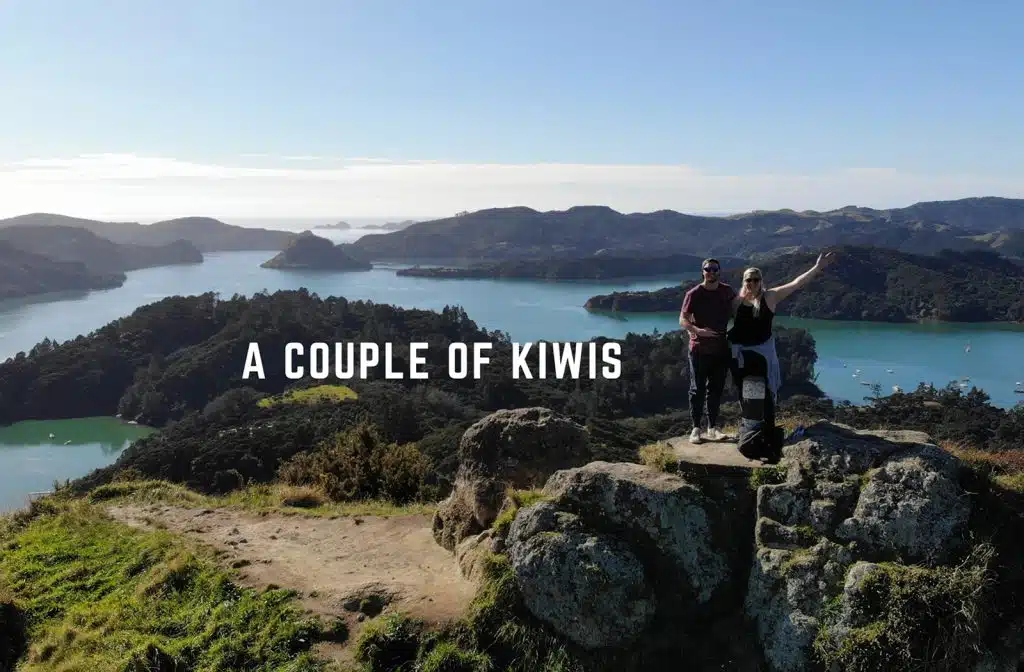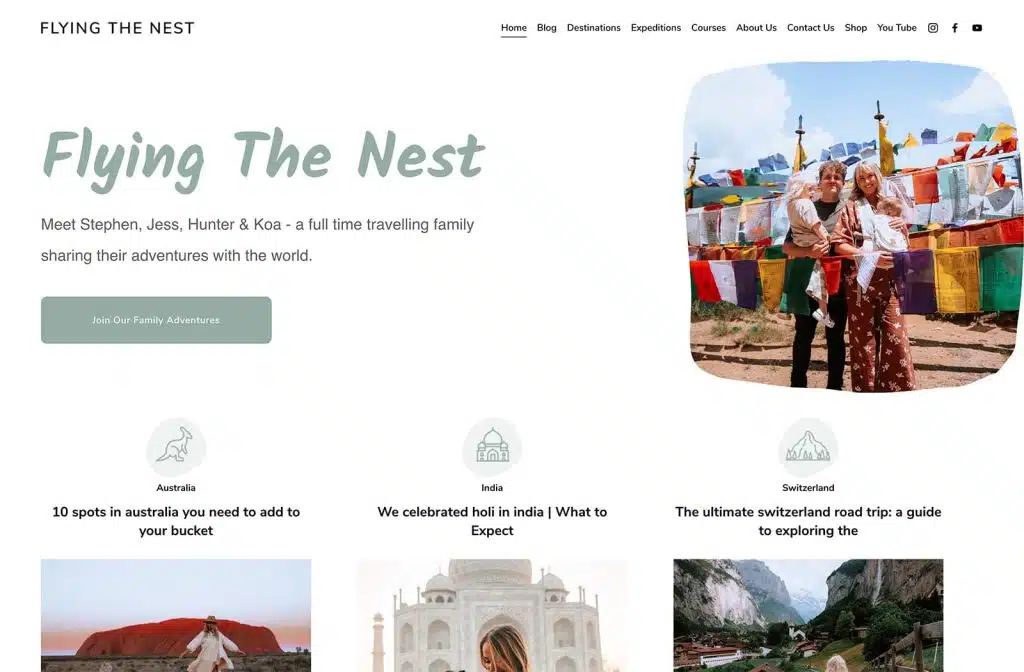Remote working as a digital nomad is a dream for many. The freedom to travel while earning a living is enticing, but it comes with its own set of challenges. In this blog post, we’ll explore tips for digital nomads, the pros and cons of remote working while travelling, and share some personal experiences from our time spent in Southeast Asia.
The Allure of the Digital Nomad Lifestyle
The digital nomad lifestyle offers unparalleled freedom. You can work from a beach in Bali, a café in Paris, or a co-working space in Thailand. This lifestyle allows you to experience different cultures, meet new people, and explore the world, all while maintaining your career.
However, it’s not all sunshine and rainbows. Balancing work and travel requires discipline, and the lack of a fixed routine can be challenging. Here are some tips to help you navigate the digital nomad lifestyle.
1. Finding the Right Workspace
One of the biggest challenges for digital nomads is finding a suitable place to work. Here are some options:
- Hotels: Many hotels offer business centres or quiet spaces where you can work. Look for hotels with good reviews on their Wi-Fi quality.
- Cafés: Cafés are a staple for many digital nomads. They offer a vibrant atmosphere and often provide free Wi-Fi. Ensure you order regularly and don’t overstay your welcome. Choose cafés with reliable Wi-Fi, comfortable seating, and a noise level conducive to work, and make sure you have your VPN on; you don’t want anything compromised. In our travels through Cambodia, we found an amazing café called Temple Café and Bakery. They offer a fantastic setting, comfortable tables (or even day beds with tables), amazing food, and a great coffee selection.
- Co-working Spaces: Co-working spaces are ideal for remote workers. They offer a professional environment, reliable internet, and networking opportunities. Popular in many cities, these spaces can be a bit pricey but are worth the investment for a stable working environment.
- Public Spaces: Public spaces, such as parks and beaches, can provide a refreshing change of scenery. However, they might not always have Wi-Fi, so it’s essential to plan accordingly and have a backup plan. Have a SIM with plenty of data; this is also useful just as a backup plan for when you are on the move or when Wi-Fi goes down in places such as hotels.
- Libraries: Libraries are an excellent option for digital nomads seeking a quiet and focused environment. They typically offer free Wi-Fi, comfortable seating, and a peaceful atmosphere, making them ideal for productivity.
2. Health, Wellness, and Work-Life Balance Tips
Maintaining your health and wellness while balancing work and travel is crucial for long-term success as a digital nomad. Here are some combined tips to help you stay healthy, balanced, and productive:
- Find Accommodation with Amenities: Look for places to stay that offer amenities like a pool or gym. Using these facilities is a great way to relax, unwind, and improve your mental health.
- Take Breaks Outside: Don’t stay cooped up in your workspace all day. Take time to get out of the “office” and sit in a park, enjoy a long coffee or tea, and read a book. Fresh air and a change of scenery can do wonders for your well-being.
- Maintain a Routine: Try to keep a regular schedule for sleep, meals, and exercise. Consistency helps in maintaining physical and mental health.
- Stay Active: Engage in physical activities like walking, yoga, or any form of exercise you enjoy. Physical activity not only keeps you fit but also boosts your mood and productivity.
- Set Clear Boundaries: Define your work hours and stick to them. Avoid the temptation to work late into the night to catch up.
- Prioritise Tasks: Use productivity tools to manage your tasks and set priorities. Apps like Trello and Asana can be very helpful.
- Take Regular Breaks: Regular breaks are essential for maintaining productivity and avoiding burnout. Use techniques like the Pomodoro method to structure your work intervals.
- Explore and Enjoy: Make time to explore your destination. Getting out and seeing the world is one of the biggest perks of being a digital nomad.
- Stay Social: Join local digital nomad communities or co-working spaces. Networking and socialising can provide support and make your experience more enjoyable.
3. Essential Tools and Apps
Having the right tools and apps can make your life as a digital nomad much easier. Here are some must-haves to streamline your travel planning and day-to-day activities:
- Travel Planning: Efficient travel planning is crucial for digital nomads. Tools like Google Flights help you find the best flight options, while accommodation platforms like Agoda, Booking.com, Trip.com and Airbnb offer a wide range of lodging choices to suit your needs and budget. Additionally, Skyscanner is an excellent resource for comparing flights, hotels, and car rentals.
- Reviews and Itineraries: To ensure you are choosing the best places and services, use Google Business Profiles to read reviews from other travellers. For managing your travel plans, TripIt consolidates your itinerary, helping you stay organised by keeping all your travel details in one place.
- Security: Protecting your data while travelling is paramount. Using a reliable VPN like PureVPN can help secure your internet connection, especially when using public Wi-Fi networks. This ensures your sensitive information remains private and secure from potential cyber threats.
- Financial Management: Managing finances on the road can be challenging. Tools like XE Currency help you keep track of exchange rates and manage your money effectively. This app provides real-time currency conversions, making it easier to handle transactions in different currencies.
- Transportation and Delivery: Navigating new cities and finding transportation is made easier with apps like Grab and Uber. These apps offer ride-hailing services that are reliable and convenient. For food delivery, apps like GrabFood and UberEats bring local cuisine right to your doorstep, saving you time and effort.
- Experiences: Discovering new activities and experiences is a significant part of the travel journey. Platforms like Klook and Viator offer a variety of tours, activities, and experiences that you can book in advance. These apps provide reviews and ratings to help you choose the best experiences.
4. Legal Considerations and Visa Tips
Navigating visa requirements and legal considerations can be challenging for digital nomads. Here are some tips to help you manage:
- Research Visa Requirements and Stay Informed: Each country has different visa regulations, and it’s essential to research these before you plan your trip. Visa requirements can change frequently, so it’s essential to stay updated. For example, Australians visiting Vietnam need to apply for a visa in advance, which can take up to five business days. This process is not as quick as e-visas available for other countries, so plan your entry accordingly to avoid any last-minute issues. Websites like Smart Traveller and VisaHQ provide comprehensive and up-to-date information about visa requirements, helping you stay informed and prepared.
- Proof of Exit: Some countries and airlines require proof of an exit flight before allowing entry. This means you need to have a forwarding flight booked to show immigration officials. It’s a crucial step in your travel planning to ensure you don’t face any problems at the airport or border.
- Plan Your Stay: Be aware of the duration you are allowed to stay in each country and any possibilities for extensions. Overstaying your visa can lead to fines, travel bans, and other legal issues. Make sure you understand the rules and adhere to them to avoid complications.
- Keep Documents Handy: Always have copies of your important documents, such as your passport, visa, and travel insurance. Having both digital and physical copies can save you in emergencies. Keep these documents secure but easily accessible in case you need them quickly. This preparation can prevent potential headaches and ensure smoother travel experiences.
5. Safety and Security Tips
Staying safe while travelling is paramount. Here are some tips to ensure your safety and security:
- Secure Your Belongings: Use anti-theft backpacks and secure your valuables in a safe place. Always be mindful of your surroundings.
- Use a VPN: Protect your data, especially when using public Wi-Fi networks. We use PureVPN for its affordability and functionality.
- Be Aware of Local Scams: Research common scams in your destination and stay vigilant. Trust your instincts and avoid situations that seem too good to be true.
- Stay Connected: Use apps like Facebook Messenger or some sort of private message app to keep in touch with friends and family. Share your travel itinerary with someone you trust.
- Learn Basic Local Phrases: Knowing a few key phrases in the local language can be helpful in emergencies and show respect to the local culture.
6. Cultural Etiquette
Respecting local customs and traditions is crucial when travelling. Here are some tips to help you navigate cultural differences:
- Dress Appropriately: Be mindful of local dress codes, especially in religious or conservative areas. Modest clothing is often appreciated.
- Learn Local Customs: Research the cultural norms and etiquette of your destination. Understanding local customs can prevent misunderstandings and help you blend in.
- Be Polite: Simple gestures like saying “please” and “thank you” in the local language can go a long way in showing respect and building rapport with locals.
7. Embrace Flexibility
Flexibility is key to thriving as a digital nomad. Here are some tips to help you stay adaptable:
- Plan Ahead but Stay Open: While planning is essential, be open to changes and unexpected opportunities. Flexibility allows you to make the most of your travel experiences.
- Have a Backup Plan: Whether it’s a backup workspace or an alternative route, having a plan B can save you from potential disruptions.
- Stay Positive: Embrace the unexpected and maintain a positive attitude. Challenges are part of the journey and can lead to memorable experiences.
Personal Experiences: Working in Southeast Asia
In the past year, we have worked well over six months in Southeast Asia, specifically in Thailand, Malaysia, Vietnam, Cambodia, Indonesia (Bali), and the Philippines. Here are some pros and cons we’ve encountered in these countries:
Thailand 🇹🇭
Pros
- Affordable Cost of Living: Thailand offers a low cost of living, making it easier to manage expenses.
- Strong Digital Nomad Community: Places like Chiang Mai and Bangkok have vibrant communities of digital nomads.
- Delicious Food: Access to a variety of inexpensive and delicious local cuisine.
Cons
- Language Barrier: While English is spoken in tourist areas, it can be challenging in more remote regions.
- Internet Stability: Internet quality can vary, especially outside major cities.
- Visa Regulations: Staying long-term can be complicated due to strict visa policies.
Malaysia 🇲🇾
Pros
- Modern Infrastructure: Cities like Kuala Lumpur offer excellent infrastructure and amenities.
- Multicultural Environment: Malaysia’s diverse culture can be enriching and offers a variety of experiences.
- Strategic Location: Easy access to other Southeast Asian countries for short trips.
Cons
- High Humidity: The tropical climate can be uncomfortable, especially for those not used to it.
- Work-Life Balance: Major cities can have a fast-paced lifestyle, which might be stressful.
- Internet Reliability: While generally good, internet can be unstable in rural areas.
Vietnam 🇻🇳
Pros
- Low Cost of Living: Vietnam is highly affordable, making it an attractive destination for digital nomads.
- Rich Culture and History: There is plenty to explore in terms of history and culture.
- Expanding Digital Nomad Scene: Cities like Ho Chi Minh City and Hanoi are becoming popular among remote workers.
Cons
- Language Barrier: English is not widely spoken, which can pose communication challenges.
- Pollution: Air quality in major cities can be poor.
- Internet Consistency: While available, internet speed can fluctuate, especially during peak hours.
Cambodia 🇰🇭
Pros
- Affordable Living Costs: Cambodia offers one of the lowest living costs in Southeast Asia.
- Historical Sites: Access to world-famous historical sites like Angkor Wat.
- Growing Expat Community: Increasing number of expats and digital nomads in cities like Phnom Penh and Siem Reap.
Cons
- Healthcare Quality: Medical facilities are not as advanced as in neighbouring countries.
- Limited Infrastructure: Infrastructure development is slower compared to other Southeast Asian countries.
- Internet Access: Internet speed and reliability can be an issue in many areas.
Indonesia (Bali) 🇮🇩
Pros
- Scenic Beauty: Bali offers stunning landscapes and a serene environment.
- Well-Established Nomad Hubs: Places like Ubud and Canggu are well-known for their digital nomad communities.
- Cultural Richness: Rich Balinese culture and numerous festivals to experience.
Cons
- Tourist Crowds: Popular areas can be very crowded with tourists.
- Internet Connectivity: While improving, internet speed can still be an issue in some parts.
- Cost Variability: While affordable, prices in tourist hotspots can be significantly higher.
Philippines 🇵🇭
Pros
- Widespread English Proficiency: English is widely spoken, making communication easier.
- Beautiful Islands: Numerous stunning islands and beaches to explore.
- Friendly Locals: Filipinos are known for their hospitality and friendliness.
Cons
- Natural Disasters: Prone to typhoons and earthquakes, which can disrupt plans.
- Traffic Congestion: Major cities like Manila suffer from severe traffic problems.
- Internet Quality: Internet speed and reliability can be inconsistent, especially outside urban areas.
Conclusion
Embracing the digital nomad lifestyle can be incredibly rewarding, offering freedom, flexibility, and a unique blend of work and travel. By following these tips, you can navigate the challenges and make the most of your remote work journey. Keep coming back to our blog for more insights and tips to enhance your digital nomad experience.
What are your top tips for thriving as a digital nomad? Share your experiences and advice in the comments below!
Conclusion
Embracing the digital nomad lifestyle can be incredibly rewarding, offering freedom, flexibility, and a unique blend of work and travel. By following these tips, you can navigate the challenges and make the most of your remote work journey. Keep coming back to our blog for more insights and tips to enhance your digital nomad experience.






















